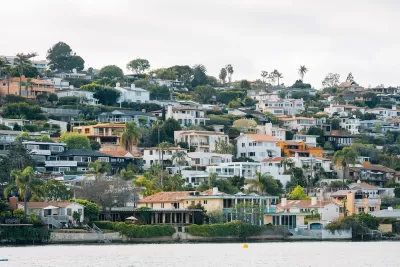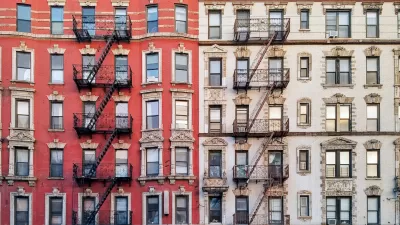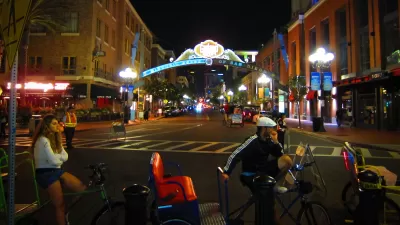Since enacting a spate of regulations on short-term rentals, the city has removed over 7,000 illegal listings from online platforms.

A year after San Diego began requiring licenses for short-term rentals, the city says it has removed over 7,000 illegal listings from online platforms.
According to an article by Lori Weisberg and Roxana Popescu in The San Diego Union-Tribune, “Among the almost 1,800 cases the city has processed, there were nearly 500 unlicensed rentals, more than 400 units that didn’t post a host’s contact information so it was visible to the public, and dozens more instances where hosts were unresponsive to complaints about noise.”
Last year’s ordinance was the city’s first attempt to regulate rentals under 30 days. It caps licenses at one per person and citywideSTRs at 6,592. “Current regulations allow just one license per person, plus a citywide cap of 6,592 licenses for the rental of entire homes for at least 90 days out of the year. Since May of last year, the city has issued more than 5,800 two-year licenses – at a cost of $1,000 each – for whole-home rentals throughout the city.”
Most owners have complied with regulations, and the city only assessed six $1,000 fines. “Revenue to the city from license and application fees has generated more than $7.5 million as of June 30, which so far has more than covered program enforcement costs of over $6.7 million.”
While the city relied on an external analyst to identify non-compliant listings over the last year, the new budget doesn’t include funding for the company. The city plans to rely on STR platforms to self-report listings, which could reduce the effectiveness of the program.
City officials are meeting to discuss potential changes to the program, acknowledging that some owners have gone to unexpected lengths to subvert the rules and operate multiple rentals.
FULL STORY: San Diego’s short-term rental regs a year later: Is the city cracking down on scofflaws?

Planetizen Federal Action Tracker
A weekly monitor of how Trump’s orders and actions are impacting planners and planning in America.

Maui's Vacation Rental Debate Turns Ugly
Verbal attacks, misinformation campaigns and fistfights plague a high-stakes debate to convert thousands of vacation rentals into long-term housing.

San Francisco Suspends Traffic Calming Amidst Record Deaths
Citing “a challenging fiscal landscape,” the city will cease the program on the heels of 42 traffic deaths, including 24 pedestrians.

Trump Prompts Restructuring of Transportation Research Board in “Unprecedented Overreach”
The TRB has eliminated more than half of its committees including those focused on climate, equity, and cities.

Amtrak Rolls Out New Orleans to Alabama “Mardi Gras” Train
The new service will operate morning and evening departures between Mobile and New Orleans.

The Subversive Car-Free Guide to Trump's Great American Road Trip
Car-free ways to access Chicagoland’s best tourist attractions.
Urban Design for Planners 1: Software Tools
This six-course series explores essential urban design concepts using open source software and equips planners with the tools they need to participate fully in the urban design process.
Planning for Universal Design
Learn the tools for implementing Universal Design in planning regulations.
Heyer Gruel & Associates PA
JM Goldson LLC
Custer County Colorado
City of Camden Redevelopment Agency
City of Astoria
Transportation Research & Education Center (TREC) at Portland State University
Jefferson Parish Government
Camden Redevelopment Agency
City of Claremont





























